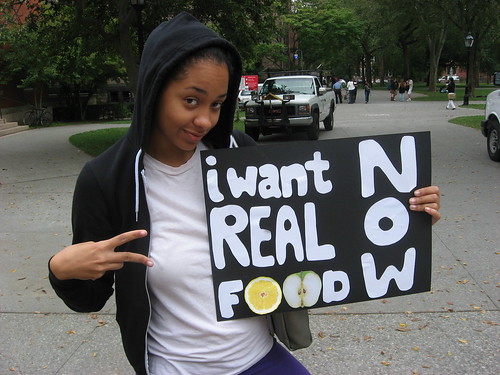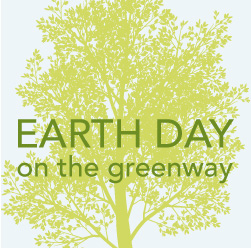
Sunday, April 1, 2012 7:00 PM – 8:30 PM EDT
There is an explosion of passion amongst young people dedicated to food system transformation — from young farmers to community organizers to policy advocates.
• How do you cultivate the relationships and skills necessary to pursue a lifelong career in the food movement?
• Where do you start?
• What should you do?
REGISTER HERE!
Join the Real Food Challenge Alumni Network with a panel of young food system change-makers to hear their stories and advice about how they got to where they are, and how you can get there too!
Cynthia Mathys is currently a Research Support Specialist in the Dyson School of Applied Economics and Management at Cornell University and works on a variety of projects related to food security, food aid, and index-based livestock insurance.
Sue DeBlieck is a Real Food alumni focused on farm to school and youth education projects. As a student in the Graduate Program in Sustainable Agriculture she helped initiate the Farm to ISU program at Iowa State University. She later coordinated the Downeast Farm to School program working with 40 schools in Maine. She is the program coordinator of the AgCulture Youth Food and Farm Program for Urban Dreams.
Hải Võ là người Việt Kinh, born in Iowa and raised by refugee parents in Orange County, California. A queer, first-generation Vietnamese-American, Hải helps organize Live Real, CANFIT, and Nutrition by Tradition. Based in southern California, Hải is passionate about traditional food(ways), (e)advocacy, popular education, and returning to Việt Nam in the very near future.
Drew Love currently works for NOFA/Mass (Northeast Organic Farming Association of Massachusetts) and Deans Beans, an organic fair trade coffee roaster. With NOFA, he coordinates workshops on local food production, preparation, and preservation, in addition to organizing a pilot project to connect low-income populations with MA CSA programs. His work with Dean’s Beans focuses on social media strategies and marketing.


 The 3rd Annual Sustainable Economy Conference
The 3rd Annual Sustainable Economy Conference




Find Us On Social Media!